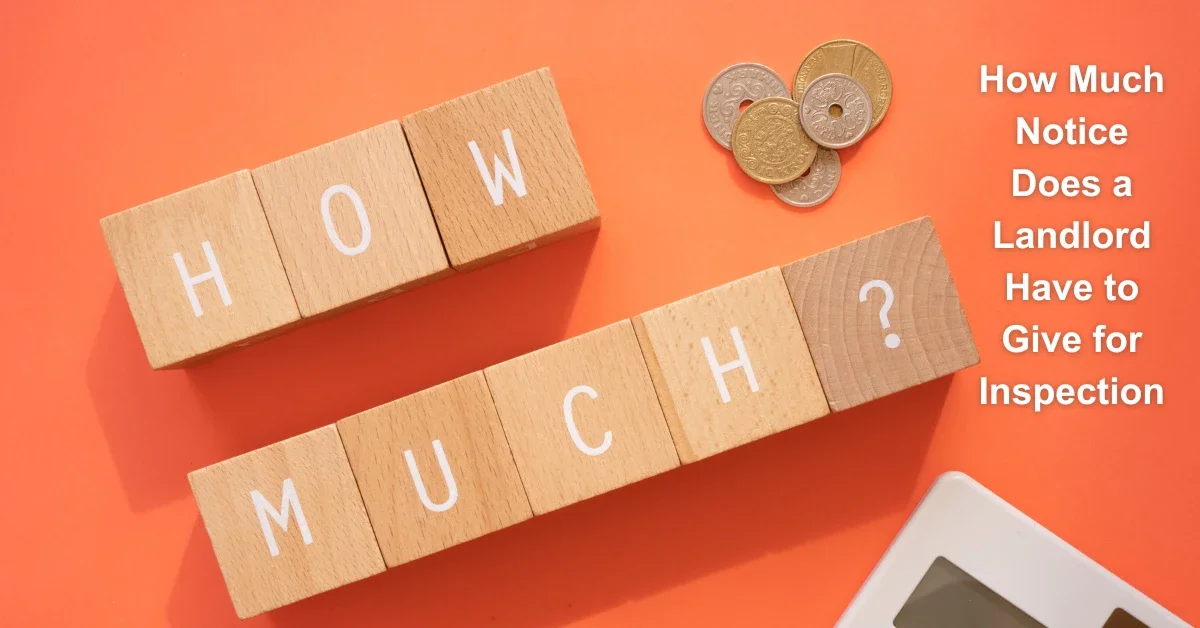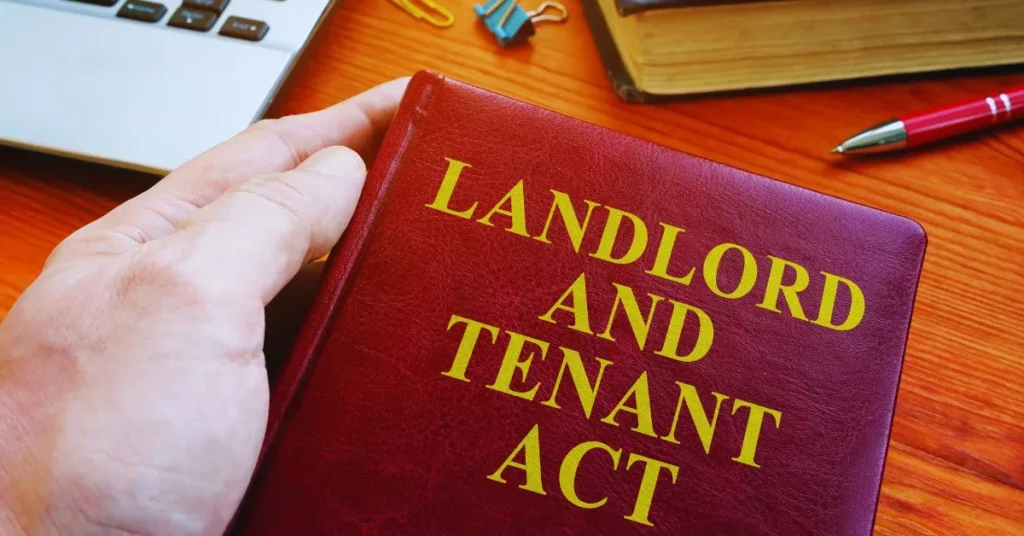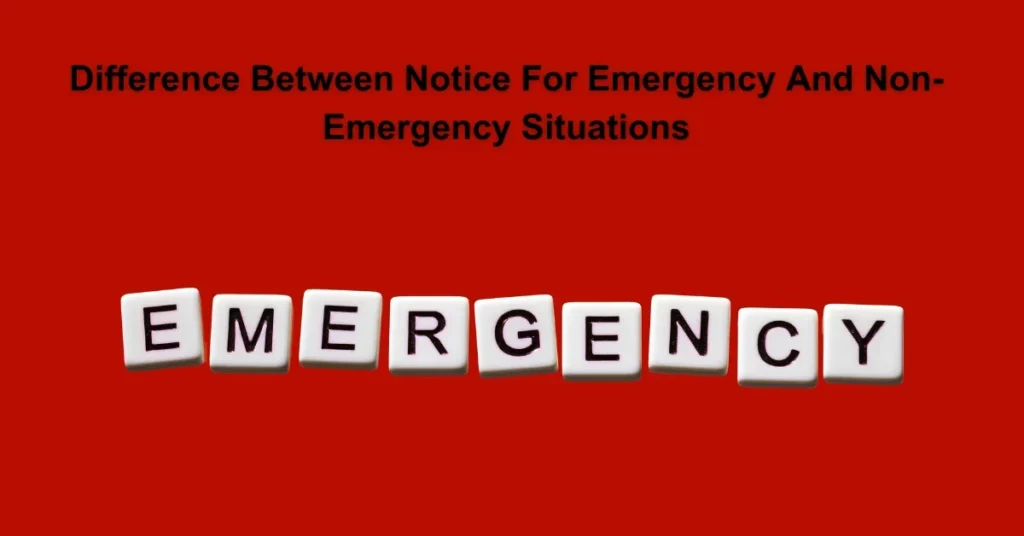How Much Notice Does a Landlord Have to Give for Inspection?
The landlord needs to respect their tenant’s privacy and only conduct inspections for a legitimate reason. As a landlord or property owner, it’s natural to want to inspect your rental property now and then.
However, tenants have rights, and these can vary depending on the state or country in which the property is located.
A landlord must give a minimum of 24 hours’ notice before inspecting a property. This notice should be in writing and include the reason for the inspection.
Let’s discuss this Briefly!

The Rights Of A Landlord And Tenant

Clarifying The Purpose Of Landlord Inspections
Landlord inspections are an important aspect of renting a property.
The reason is it enables the landlord to identify any issues that need addressing and make sure that the tenant is complying with the terms of the lease.
Landlords should give notice before entering and inspecting a property.
The notice must be given within a reasonable time frame, and the landlord must come at a reasonable time, respecting the tenant’s privacy.
The notice should also state the date and time of the inspection.
Some of the reasons for inspections include checking the property’s condition, ensuring necessary repairs are made, identifying lease violations, and making sure the tenant is following safety protocols.
However, it’s important to note that inspections should not be used as an opportunity for landlords to harass tenants or exert undue control over their lives.
The right to quiet enjoyment and privacy is always a critical aspect of lease agreements, and landlords must respect that right.
Tenant’S Right To Privacy And Quiet Enjoyment
One of the key aspects of a lease agreement is the tenant’s right to privacy and quiet enjoyment.
This means that tenants have the right to use and enjoy their rented property in peace without any interference from the landlord.
Landlord inspections must respect this right.
The landlord must give prior notice of inspection, enter the property at a reasonable time, and not disrupt the tenant’s everyday life.
Tenants have the right to ask that the inspection be conducted at a time that suits them better, and if the landlord and tenant cannot agree on a reasonable time, the tenant can refuse the inspection.
Landlords must respect that.
Outlining Legal Responsibilities Of A Landlord And Tenant
Both landlord and tenant have legal obligations in a lease agreement.

Landlord Responsibilities
- Ensure that the tenant has quiet enjoyment of the property.
- Keep the property safe and free from hazards.
- Maintain the property to a reasonable standard.
- Make necessary repairs and address maintenance issues.
- Ensure that the tenant has access to electricity, heating, and hot water.
- Ensure that the tenant has a copy of the lease agreement.
- Provide notice before entering the property and respect the tenant’s privacy.
Tenant Responsibilities
- Pay rent on time.
- Keep the property clean and tidy.
- Ensure that the property is not damaged.
- Inform the landlord of any repairs that need addressing.
- Use the property for the purpose for which it was leased (e.g., not use a residential property as a business).
- Respect the neighbours and the community.
- Comply with the lease agreement.
Landlord inspections must respect the tenant’s right to privacy and quiet enjoyment.
They should be conducted with reasonable notice, at a reasonable time, and for legitimate purposes.
Both landlord and tenant have legal obligations in the lease agreement that they need to adhere to.
Ultimately, clear communication and mutual respect are vital for a successful landlord-tenant relationship.
Legal Notice Requirements
As a tenant, it is important to know your legal rights when it comes to landlord inspections.
The landlord is required to give notice before inspecting your rented property.
Each state has its legal notice period, ranging from 24 hours to a week, and sometimes even beyond that.
It is crucial to know the specific notice period required by law in your state to avoid any misunderstandings with your landlord.
Exceptions To Notice Requirements
As much as it is a legal requirement for a landlord to provide notice before inspection, there are some exceptions.
In some states, inspectors can enter the property without notice during emergencies or under certain circumstances.
For instance, if the landlord suspects that the tenant has breached the lease or that illegal activities are being done on the property, they can enter without notice.
Therefore, it is crucial to check for any exceptions to the notice requirements in your state.
Difference Between Notice For Emergency And Non-Emergency Situations
The notice period for inspections varies depending on whether the situation is an emergency or not.

In non-emergency situations, the landlord must give a reasonable notice period as required by law before the inspection.
In emergencies, the landlord can enter the property without notice to inspect the damage or perform repairs.
However, the landlord must still provide notice after the inspection has taken place.
Understanding the legal notice requirements for landlord inspections is essential for tenants to protect their rights and avoid any misunderstandings with their landlords.
Each state has its regulations, and it is crucial to know your state’s notice period requirements.
Additionally, it is essential to know the exceptions to the notice period requirements and the difference between emergencies and non-emergencies.
With this information at your fingertips, you can ensure your landlord complies with the law while maintaining a good tenant-landlord relationship.
FAQs
How Much Notice Does A Landlord Have To Give For Inspection?
Landlords can inspect with reasonable notice, typically 24-48 hours, depending on the state’s laws and lease agreements.
Can Landlords Enter Without Permission?
No, landlords cannot enter the property without permission, except in the case of an emergency or scheduled inspection.
What Should A Landlord Inspect During A Visit?
Landlords can inspect for maintenance issues or damages, ensure compliance with lease agreements, check safety systems, and verify tenant occupancy.
What Can A Tenant Do If A Landlord Enters Without Notice?
Tenants can take legal action if landlords enter without proper notice, including filing a complaint with the property manager or local authorities.
Conclusion
Navigating the world of tenant rights isn’t easy, but you’ve taken a strong first step. Remember, landlords must typically provide a 24 to 48-hour notice before an inspection.
Knowing your rights empowers you to have confident, informed discussions with your landlord. Stand tall, knowing you’re prepared.
Reference
https://www.seattle.gov/sdci/codes/common-code-questions/notice-to-enter-a-rental-unit